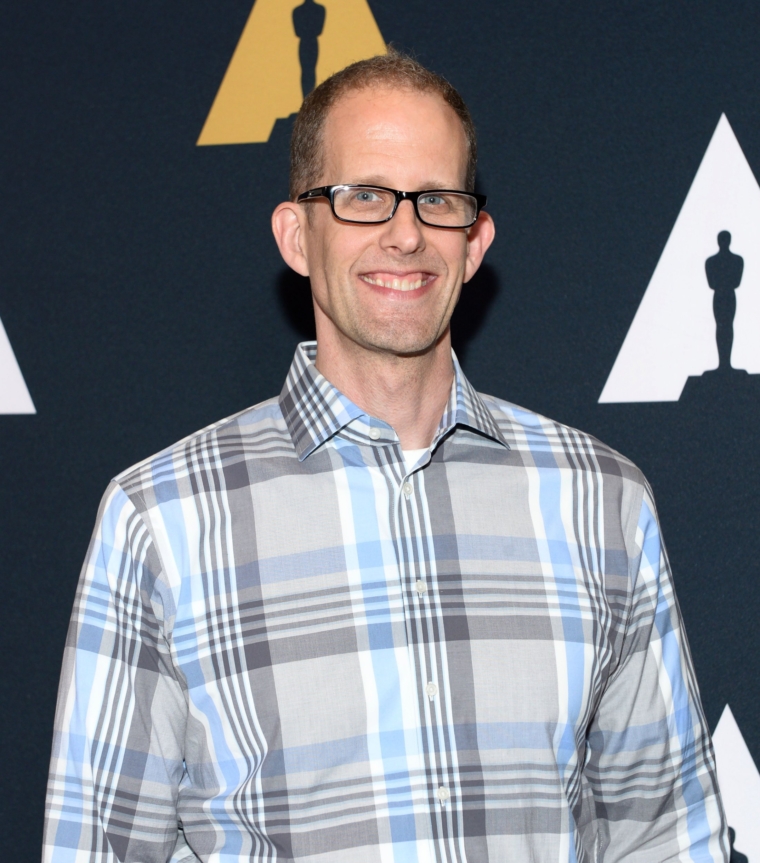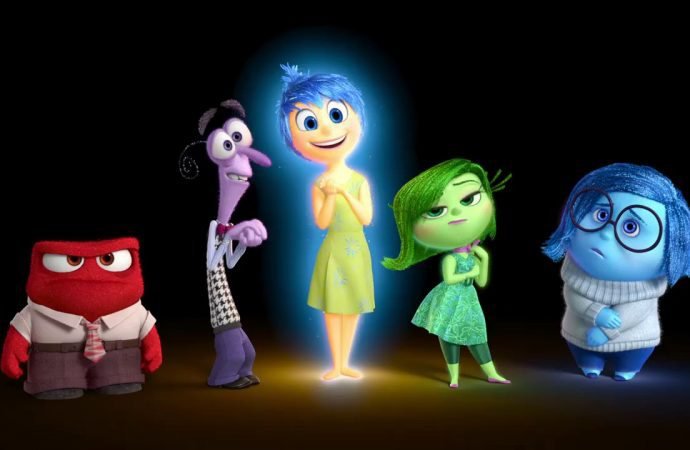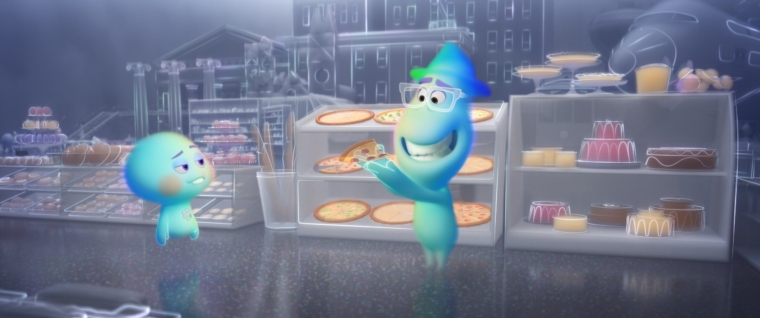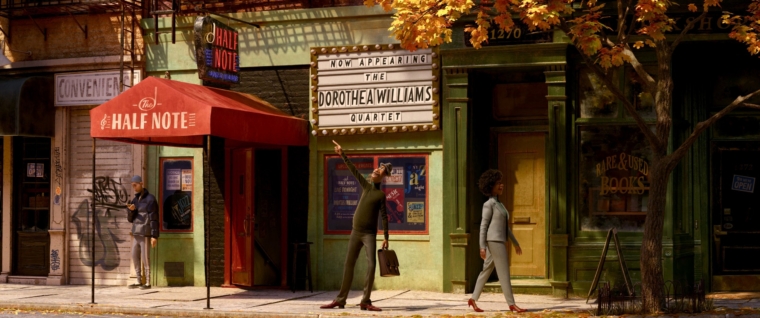How does Pete Docter do it? The genial, bespectacled animator was among the first employees hired by Pixar, way back in the Steve Jobs era. Joining the company in 1990, aged 21, he has worked on almost every movie the studio has made, from Toy Story in 1995 to Soul, which is out on Christmas Day. He’s a writer, voice actor and a cartoon wizard. He was behind modern-day classics such as Up and Inside Out.
And now, Docter also oversees everything else that goes on at the company. He has been chief creative officer at Pixar since his mentor, the company co-founder John Lasseter, left in 2018, after allegations of “unwanted workplace hugging.”
With all that power and responsibility, you half expect Docter to be like Gordon Gekko in Wall Street (1987). However, the friendly, slightly geekish-looking figure who turns up to be interviewed via Zoom looks more like a favourite geography teacher than a master of the universe.
Docter originated Soul and co-directed it. The film, a metaphysical story about a jazz-loving New York school teacher whose soul is whisked off to the “Great Beyond”, must have been a massive undertaking. It had a reported budget of $150m (£111m) and had to be completed in double-quick time. It was originally earmarked for release in the summer of 2021 but was brought forward when another Pixar project was delayed.

Soul is the first Pixar movie with a black protagonist. Joe Gardner (voiced by Jamie Foxx) is a middle-aged man whose life hasn’t turned out as he’d hoped. Joe wanted to be a professional musician. Instead, he’s a music teacher, still mollycoddled and scolded by his formidable mother.
Joe is roughly the same age as Docter (who’s 52). I ask the director if he identifies with the character or shares any of Joe’s mid-life angst. “Yeah, it’s a very personal film,” Docter replies, a little surprisingly. “I feel like I’ve been on Joe’s journey. Since I was eight, I have been in love with animation. I’ve felt animation was what I was born to do. But then, by the time I finished Inside Out, I realised I had accomplished more than I ever set out to… and yet I don’t feel like everything inside me is all worked out and settled.
“It’s not like this passion fixed everything in my life and made it all make sense. So I started to wonder if there was more I was meant to be doing. That’s really the core of what this story is about. It’s kind of investigating what we are meant to be doing with our limited time on earth.”
It’s an intriguing answer and one which hints at why Pixar movies mean so much to audiences. They may be glossy, marketing-driven, computer-animated extravaganzas but they deal with primal emotions. Docter’s co-director Kemp Powers was brought in at a relatively late stage, in 2018. Powers has had his own painful and personal brush with mortality. In a tragic accident in the late 1980s, when playing with a gun, he shot and killed his best friend.

Pixar films have dealt with death before, notably in Coco (2017), based around the Mexican celebration of The Day of the Dead.
“I think the reason it [death] comes up is that it is really the key to value in life. There are a lot of stories told about immortals and they stop valuing the very thing that makes life unique,” Docter says, a remark which could be interpreted as a dig against the superficiality of superhero films. “It’s only by the absence of something that you start to recognise the importance of it. We really thought this film was less about death and more about life. It is really a celebration of what makes life worth living.”

Like Joe in Soul, Docter has a passion for jazz. “I grew up in a family of classically trained musicians. I have two sisters who are both professional. One is a violinist and one is a cellist.” When he was growing up in Minnesota, his parents were both involved in music, his mother as a teacher and his father as a choral director.
“I kind of rebelled by getting into 1930s big-band jazz,” he remembers. “I don’t know why but, as a kid, I was fascinated by it. As we were looking for an occupation and a passion for this main character [in Soul], jazz just seemed like that would be fun to watch. When you see someone play and they’re good, it’s like a great magic trick.”

While researching the film, Docter and his team came across a video clip of jazz pianist Herbie Hancock talking about performing with Miles Davis’s group. Hancock reminisced about one concert where everything was going swimmingly but then he let Davis down.
“Right in the middle of Miles’s amazing solos, I played the wrong chord. Completely wrong. It sounded like a BIG MISTAKE,” Hancock stated. “And Miles paused for a second. And then he played some notes that made my chord right.”
Docter was inspired by what Hancock described. Confronted with Hancock’s bum note, rather than get angry, Davis had “turned something new into something of value.
“We thought, wow, that’s exactly what we are trying to say with this movie. Jazz could be a very potent and poignant symbol and metaphor for the movie.”
Docter’s workload must be enormous. Is he a tough taskmaster? Does he bellow at his Pixar minions through a megaphone and have Tom Cruise-like tantrums with the crew? Dana Murray, producer of Soul, chuckles at the idea, suggesting the reverse is the case.
“He’s incredibly generous and listens and wants to hear people’s ideas,” she says of Docter. “We always joke that Pete doesn’t make the films – he finds them. He really does love to search.”

“Over the years, I’ve gotten good at compartmentalising and turning other things off,” Docter explains. “This is my excuse for why I can never remember my wife’s birthday.
Whatever is in front of me is all-consuming. I am lucky also, of course, to work with such talented people. With some direction from me and consensus as to where we are going, they can run with stuff and make decisions.”
The films, Docter adds, get “better the more you trust people. The more you are able to communicate loosely or emotionally what we need in the scene, the more they can bring of their own expertise”.
Ask Docter why it has taken quite so long for Pixar to make a movie with a black hero and he becomes a little defensive. “It has been a very homogenous group of people in animation generally,” he concedes of the white men who’ve directed almost every Pixar film. “That’s definitely changing. As we look forward, there’s a really rich diverse group of storytellers that you are going to see coming up here. I think the audiences benefit from that…
“I like to think you go to movies both to see your own life up there but to be surprised in some way – and to see it from a view you hadn’t considered before. What better way than to have all these different voices as part of that conversation?”
Soul is on Disney+ from 25 December

